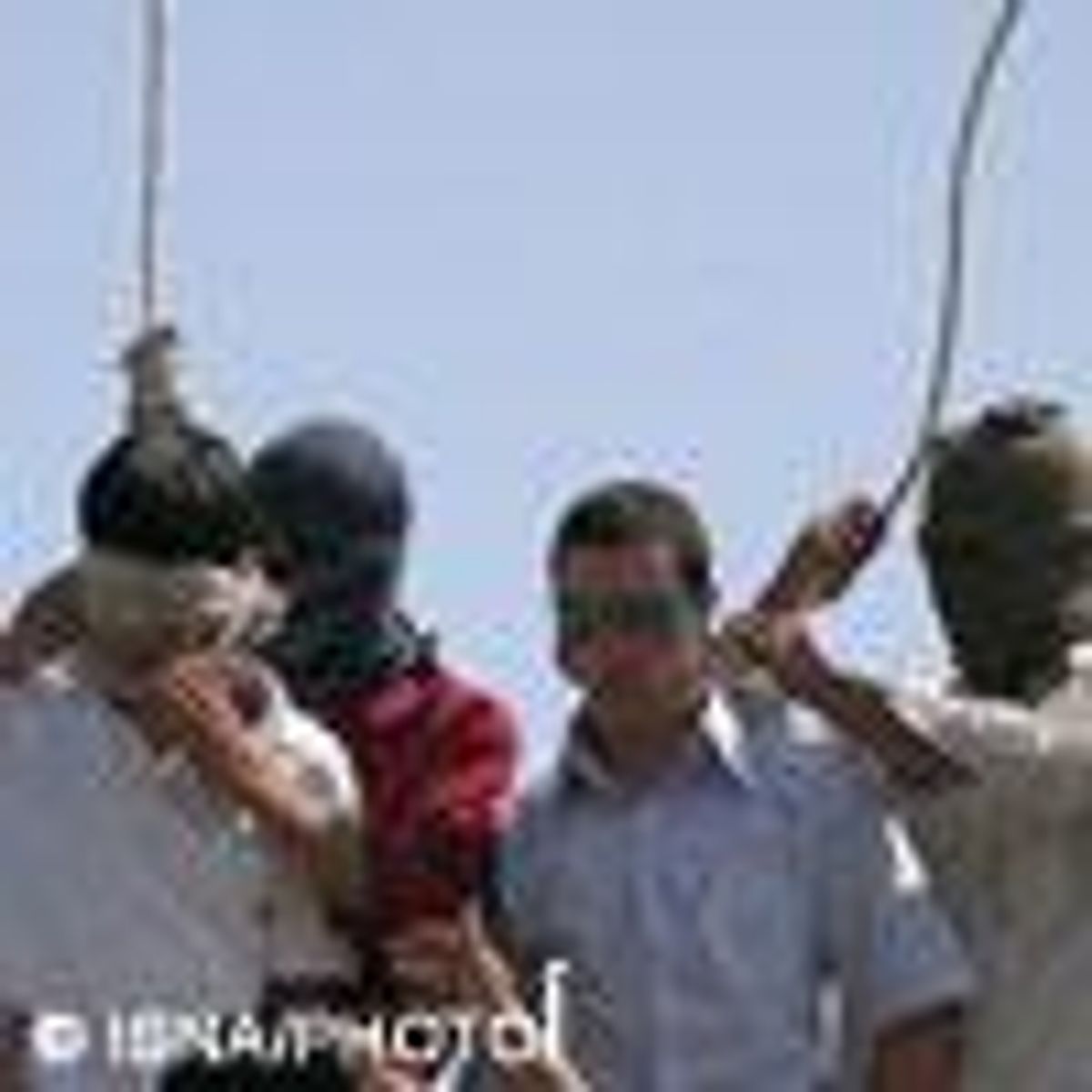Nobel Peace
laureate Shirin Ebadi on Saturday condemned the hanging of
two teenagers accused of raping younger boys in northeastern
Iran, a punishment that also prompted protests by
international organizations and human rights groups.
Last week's hangings of an 18-year-old and 16-year-old
on charges of involvement in homosexual acts violated Iran's
obligations under the International Convention on the Rights
of the Child, which bans such executions, Ebadi said.
Ebadi said her Center for the Protection of
Human Rights will intensify its fight against Iran's
executions of minors. "My calls for a law clearly
banning execution of under-18s has fallen on deaf ears so
far, but I will not give up the fight," Ebadi told the
Associated Press.
Mahmoud Asgari, 16, and Ayaz Marhoni, 18, were
hanged publicly July 19 in the city of Mashhad on
charges of raping younger boys. They said before their
executions that they were not aware that homosexual acts
were punishable by death. Asgari had been accused of
raping a 13-year-old boy. His lawyer, Rohollah Razaz
Zadeh, said Iranian courts are supposed to commute
death sentences handed to children to five years in jail.
"The judiciary has trampled its own laws," Razaz Zadeh told
the AP.
But the lawyer said Iran's supreme court upheld
the verdict and allowed the execution despite his objections.
Gay rights groups, such as the London-based
OutRage! and Iranian opposition groups suggested the
rape allegations were trumped-up charges aimed to
undermine public sympathy for the teenagers. In Sweden,
foreign ministry spokesman Per Saland said the
government is "looking very seriously" at the
hangings. "We are against the death penalty, and we
particularly react when it comes to the execution of minors,
pregnant women, and the mentally disabled," Saland said.
The Swedish Federation for Lesbian, Gay, and
Transgender Rights posted a photo on its Web site
showing hooded executioners tightening ropes around
the suspects' necks. The group's chairman, Soren Andersson,
called on Sweden's government not to deport gay and
lesbian asylum seekers back to Iran. "Sweden has
turned gay and lesbian refugees back to Iran, and they
should know that these people could be killed," he said.
Being gay or lesbian should be enough for refugees to
remain in Sweden and not be returned to Iran, he added.
Ebadi, who won the Nobel Peace Prize in 2003,
has campaigned to protect the rights of children and
improve human rights in Iran but has met stiff
resistance from the judiciary, which is controlled by
hard-liners. The Iranian government last year refused
to give Ebadi permission to stage a rally to protest
children's executions.
Under Iranian law, girls older than 9 and boys
older than 15 face execution if they commit crimes
such as murder and rape. Under certain conditions,
capital punishment is imposed for those engaging in illegal
sexual relations. In 2003 a 16-year-old girl said to be
suffering from a psychological disorder was executed
in Neka, a town in northern Iran, on charges of having
an illegal sexual relationship.
While there are no official figures on death
sentences given to minors, human rights activists say
about a dozen were executed in Iran last year. (AP)



















































































